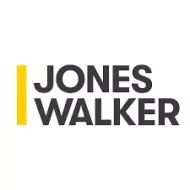- in South America
- within Transport topic(s)
- in South America
- in South America
- in South America
- within Insurance and Law Practice Management topic(s)
- with readers working within the Environment & Waste Management industries
The Federal Communications Commission (FCC) recently announced they were evaluating opening up 20,000 Megahertz of satellite spectrum to expand private satellite use. In a notice of proposed rulemaking that contains more questions than answers, the FCC is seeking industry input, with comments due July 28, 2025, and reply comments due August 26, 2025. This week, the proposed notice was formally published in the Federal Register, triggering comment deadlines.
As part of the agency's Final Frontiers agenda, focused on the reevaluation of the existing regulatory regime governing the shared satellite spectrum to further the overall goal of advancing the US leadership in space, the notice seeks information about opening up the following bands: upper 12 GHz band (12.7-13.25 GHz), 42 GHz band (42.0-42.5 GHz), 52 GHz band (51.4-52.4 GHz), and 18,000 MHz within the W band (92.0-94.0 GHz, 94.1-100 GHz, 102.0-109.5 GHz, and 111.8-114.25 GHz).
The Upper 12 GHz band (12.7-13.25 GHz) is part of the Ku-band, which is used for low Earth orbit (LEO) systems. The 42 GHz band (42.0-42.5 GHz) and 52 GHz band (51.4-52.4 GHz) are part of the V-band, which is used for high-capacity short-range communications and scientific research, including radio astronomy.
The bulk of the spectrum up for grabs by private industry is 18,000 MHz within the W band (92.0-94.0 GHz, 94.1-100 GHz, 102.0-109.5 GHz, and 111.8-114.25 GHz). Chairman Brendan Carr highlights that satellite constellations using this portion of the spectrum would be operating on cutting edge of physics. That said, opening up this previously unavailable portion of the spectrum would offer a new benchmark for companies to design for, which the FCC hopes will induce innovation.
The numerous questions for which the FCC is looking to industry to answer include:
- How could use of the 12.7 GHz and 42 GHz bands be increased? Can this be done in a way that is harmonious with the bands' existing users and spectrum users in adjacent bands?
- What international considerations have to be taken into account if usage in these bands is increased?
- How do we control harmful interference? How do we protect ongoing research using these spectrum bands? Would a 50 MHz buffer be enough?
- What is the expected timeframe for utilization of these bands if regulatory changes are enacted to open them up to private industry?
- Should downlinks be permitted?
- How can NASA's deep space facility in Goldstone, California be protected if private use of the 12.7-13.25 GHz band is expanded?
- How can we protect Department of Defense (DoD) and Federal Aviation Administration (FAA) use of adjacent bands for critical services, including Doppler navigation radar systems and air flight calculations? What about interference to National Aeronautics and Space Administration (NASA) and National Oceanic and Atmospheric Administration (NOAA) satellite systems?
Note that this list is not comprehensive. For instance, the notice of proposed rulemaking includes multiple questions dealing with footnotes to the Table of Allocations. Further, for each question above, the notice includes far more specific and technical sub-questions. As this action was prompted by the satellite industry's repeated requests for increased spectrum availability, this is an opportunity for the industry to show how that could work.
The content of this article is intended to provide a general guide to the subject matter. Specialist advice should be sought about your specific circumstances.



